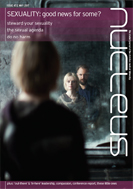OSCE 'collusion' leads to re-run
An entire OSCE is to be 're-staged' at the University of Glasgow, following suggestions of online scenario sharing. Around 270 final year students had sat the exam, following which a few had posted information about the stations on social media. Two students are facing disciplinary procedures, with others being investigated.Professor Matthew Walters, head of the school of medicine, dentistry and nursing, said: 'We're uncomfortable with the prospect of students with detailed prior knowledge. It undermines the quality of the exam'. The exam is being re-run in May for the entire year.
Such collusion is not new, with informal lists of OSCE stations having circulated in medical schools long before Facebook existed. Social media gives not only more opportunity to share information,but more robust evidence of the source, which may give both students and examination boards pause for thought. (1)
conflicting evidence on breast cancer
A recent article (2) has suggested that increases in rate of breast cancer in the UK, age at first birth, and use of hormonal contraceptives are correlated. The authors suggest that studies concluding that contraceptives carry little or no risk of breast cancer may mislead, as well as revisiting the controversial question of a link between breast cancer and abortion. Before assuming that this study may validate concerns over contraceptives and abortions increasing breast cancer risk, it is important to remember that correlation does not necessarily prove causation.The very kind of long-term research that might help was published online in March 2017. (3) More than 46,000 women were followed over 44 years. Use of combined oral contraceptives was associated with a reduction in risk of ovarian, colorectal and endometrial cancers. An increased risk of breast and cervical cancer was apparent for up to five years after ceasing to use the pill, but there was no evidence of an increased risk of these cancers later in life. The overall balance of cancer risks was thought to be neutral.
Conflicting evidence must be weighed; some may also wonder why both these papers using UK data were published in US rather than UK journals.
cohabiting parents more likely to split
The World Family Map Project examined data from the US and 16 countries in Europe. Children born into cohabiting families were almost twice as likely to see their parents split before they reached age twelve as those born into families where parents were married. The mothers'educational level did not affect this. Work looking across the globe gave a similar picture, although less specific data was available.Married parents at birth were therefore associated with a higher likelihood that a child would still live with both parents at age twelve; although marriage performed significantly better than cohabitation in this regard, children of cohabitees did appear more likely to remain with both parents than children living with a single parent from the outset.
The report showed that marriage is becoming less common globally, and expected that a larger number of children will therefore grow up not living with both parents. (4)































